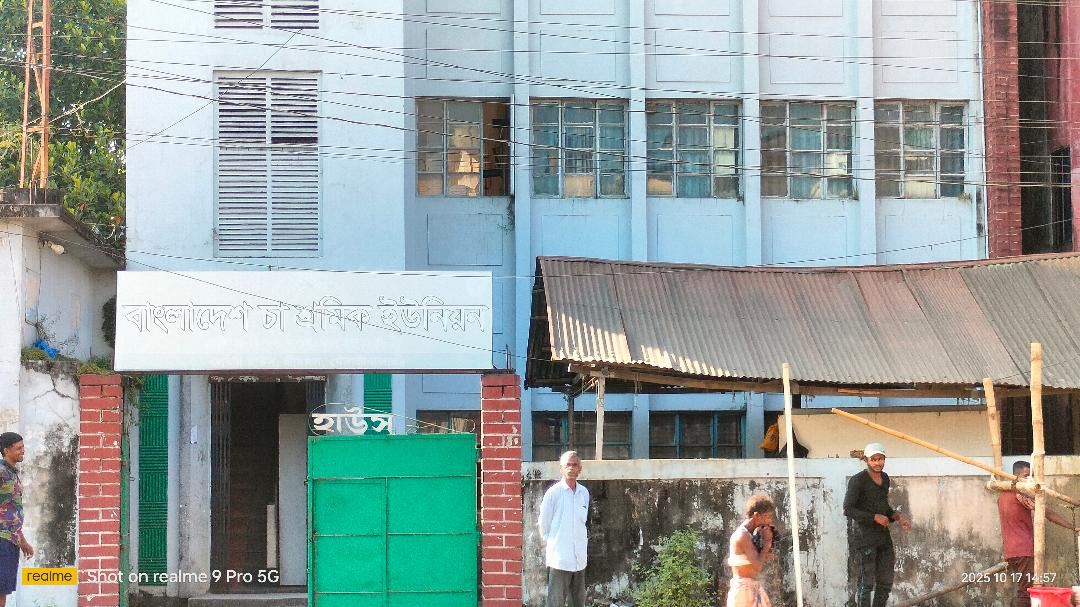Published: 03:42 PM, 17 October 2025
Jibon Santal: From Tea Garden Laborer to Champion Legislator of Sylhet

In a quiet corner of Sreemangal Upazila town, within the Purbasha residential area of present-day Moulvibazar district (formerly South Srihatta Subdivision), stands a modest home that once belonged to Jibon Santal — a tea laborer who rose to prominence as a member of the Assam Legislative Assembly during British India and one of the founding figures of the Srihatta Cha Sramik Union, the first organized labor movement in the Sylhet tea region. Today, even local leaders and activists scarcely remember him, yet his descendants still live quietly in Purbasha, carrying his largely unspoken legacy.
From the Tea Fields to Leadership
Born in the early 20th century in Majdihi Tea Estate, South Sylhet (now Moulvibazar), Jibon Santal hailed from the Santal community, one of South Asia’s oldest Indigenous groups. Like many others brought from Bihar and Chotanagpur by British planters, his family endured harsh colonial exploitation, facing grueling work, meager wages, and social marginalization.
Despite these challenges, Jibon emerged as a natural leader among tea workers. As the labor leader, or Sardar, of Majdihi Tea Estate, his courage, integrity, and charisma distinguished him. He became a voice for the voiceless, bridging the gap between oppressed workers and the corridors of political power.
Founding the Srihatta Cha Sramik Union
Before India’s Partition in 1947, Jibon collaborated with prominent Congress leaders Purnendu Kishore Sengupta (President) and Nikunjo Choudhury (Secretary) to form the Srihatta Cha Sramik Union, later renamed the Bangladesh Cha Sramik Union. Their mission was clear: organize tea workers to demand fair wages, humane working hours, better living conditions, and education for their children.
Opposing British planters was fraught with danger. Yet, under Jibon’s leadership, the scattered frustrations of laborers coalesced into a coherent movement that inspired similar activism across eastern Bengal. His leadership was not merely about protest; it was about forging dignity and rights for generations of workers.
From Union Leader to Legislator
In 1946, Jibon contested the Sreemangal constituency (under British rule) in the Assam Legislative Assembly elections, representing the Depressed Classes, and emerged victorious. That same year, tea garden management expelled him — a testament to the resistance he faced. Undeterred, he purchased a substantial plot in Purbasha and settled there with his family, marking the beginning of a new chapter in his life.
As a legislator, Jibon became the voice for those historically unrepresented. He advocated tirelessly for fair pay, education, healthcare, and the abolition of hereditary bondage that trapped tea families on estates. His very presence in the Assembly challenged systemic inequalities and colonial hierarchies.
A Voice in the United Front
After Partition, when Sylhet became part of East Pakistan, Jibon remained politically active. In the 1954 East Bengal Provincial Election, he was re-elected as an MLA under the United Front, a coalition led by A.K. Fazlul Huq, Huseyn Shaheed Suhrawardy, and Maulana Bhashani. As one of the rare representatives of marginalized tea workers and Indigenous communities, he brought their struggles to the forefront of social and political discourse.
The Purbasha Years and the Fall of the Union
Jibon’s home in Purbasha became a hub for union leaders and activists. He continued to guide the Srihatta Tea Laborers’ Union until 1960, when Pakistan's military regime under General Ayub Khan banned all trade union activities, abruptly silencing the movement he had built. In his later years, Jibon withdrew from public life, and over time, even his name faded from the records of the labor movement he had pioneered.
A Vanished Legacy
Today, documentation of Jibon Santal’s life is scarce. Even local political parties and unions, including the Bangladesh Tea Workers’ Union, know little of his contributions. His family remains in Purbasha, Sreemangal Upazila, living quietly, while the broader community remains largely unaware of the history they embody.
Why His Story Matters
Jibon Santal’s life is a testament to resilience and transformation. From the tea gardens of South Sylhet, he broke through caste, class, and colonial barriers to represent the disenfranchised. More than a unionist or politician, he was a bridge between the powerless and the powerful. Remembering him is not merely an act of honoring a forgotten leader — it is reclaiming a vital chapter in the long struggle of tea workers for dignity, rights, and social justice.




